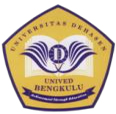INTERPERSONAL METADISCOURSE MARKERS IN SPEECHES OF MINISTER FOR FOREIGN AFFAIRS OF INDONESIA
Abstract
This research aimed to determine the types and the most dominant of interpersonal metadiscourse markers in speeches of the minister for foreign affairs of Indonesia. This research was designed by using descriptive qualitative method. The object of this research was 10 speech scripts of the minister for foreign affairs of Indonesia. The instrument in this research was a table checklist of the types of interpersonal metadiscourse markers based on Hyland theory 2005. The results of this research showed that all of types of interpersonal metadiscourse markers emerged in speeches of the minister for foreign affairs of Indonesia. Those types consisted of hedges (probably, possibility, possible, uncertain), boosters (of course, beyond, certainly, clearly, believe, indeed), attitude Markers (honored, biggest, important, agreed, interest), self-mentions (I, Me, My, We) and engagement markers (you, let, recall, question, thank you). Meanwhile the most dominant type of Interpersonal metadiscourse markers is self-mention. It is proven by the emergence of 137 self-mention in speeches of the minister for foreign affairs and particularly the use of first-person pronoun assisted the speaker to find accessible way for audiences to comprehend the context.
Keywords: Interpersonal Metadiscourse Markers, Speech, The Minister for Foreign Affairs








